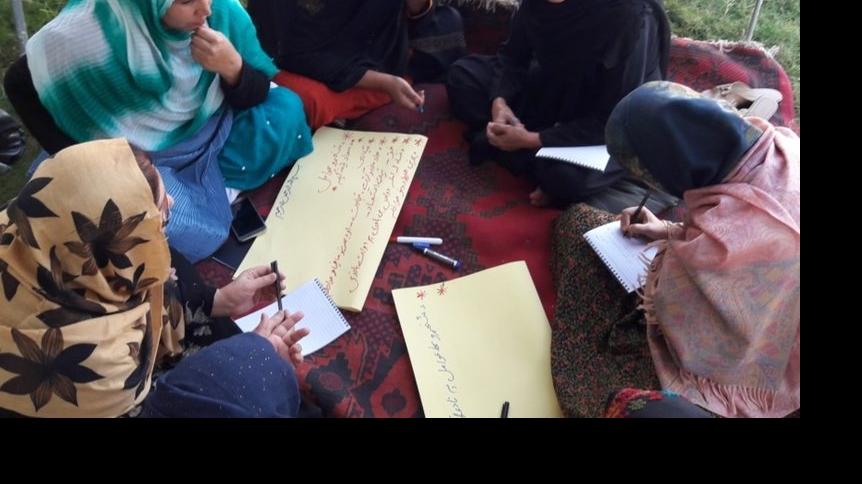NADALI - Government officials, elders, activists and other community leaders in the southern province of Helmand gathered at a UN-backed symposium to discuss local peace efforts and to strategize on ways to build national and sustainable peace.
More than 50 leaders from Helmand’s Nadali district, located west of the provincial capital of Lashkar Gah, gathered at the event to exchange ideas about the main drivers of instability in the province, such as corruption, underdevelopment and unemployment, especially among young people, and to chart out possible next steps toward peace.
“Building confidence in the peace process should start with improving good governance, justice and the rule of law,” said Shagofa, a women’s rights activist, who added that socio-economic development and justice are the foundations for peace.
Haji Ghulam Mohammad Eshaqzai, the head of Helmand’s provincial peace committee, expressed similar views, adding that communities across Helmand have been suffering from the conflict for years and urgently need peace.
“Local community engagement is crucial for achieving peace, because only communities will be able to safeguard the efforts,” he stressed, highlighting the importance of building confidence among and between Helmand’s communities as a key building block for sustaining any advancements toward peace.
Also speaking at the event was Helmand Governor Mohammad Yasin, who described how President Ghani has specifically instructed provincial governors to take practical steps that would help lay the groundwork for national peace efforts.
At the conclusion of the meeting, the participants jointly resolved to carry the discussion forward among their respective communities in future events and engagements.
The Nadali symposium, organized by UNAMA’s Kandahar regional office, is one of many other similar programmes, events and initiatives resulting from UNAMA reaching out to a range of groups across the country to create spaces, both physical and on social media, for them to come together and discuss issues that are of critical importance to them and to strategize on the best way forward.
Helmand, which shares a long border with Pakistan to the south, is a restive province said to be one of the world’s largest opium-producing regions. Helmand’s residents, most of whom work in agriculture and animal husbandry, continue to face infrastructure and services challenges.
At almost every UNAMA-backed event, local media partners not only record the discussion and debate for later rebroadcast, but also create new programmes around the issues that are raised, extending the discussion and creating new opportunities for local voices to be heard on issues such as peace, reconciliation, government transparency, human rights and rule of law.
UNAMA supports the Afghan people and government to achieve peace and stability. In accordance with its mandate as a political mission, UNAMA backs conflict prevention and resolution, promoting inclusion and social cohesion, as well as strengthening regional cooperation. The Mission supports effective governance, promoting national ownership and accountable institutions that are built on respect for human rights.
UNAMA provides 'good offices' and other key services, including diplomatic steps that draw on the organization’s independence, impartiality and integrity to prevent disputes from arising, escalating or spreading. The Mission coordinates international support for Afghan development and humanitarian priorities.






